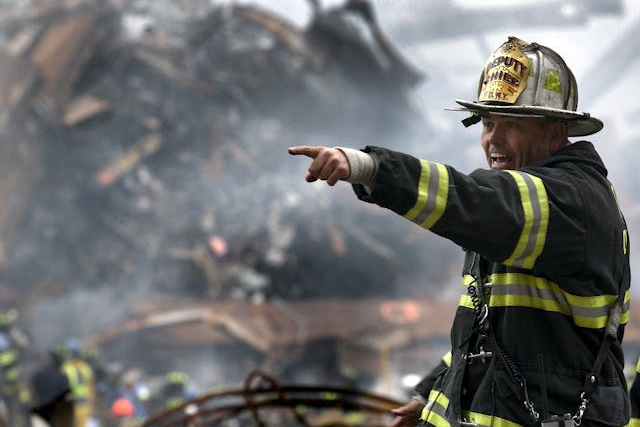Meditation: The Ultimate Stress-Relief Tool for Emergency Responders
In the fast-paced world of emergency response, stress is an undeniable adversary. For professionals in these high-pressure roles, the weight of responsibility can permeate every fiber of their being, leading to an overwhelming sense of anxiety and pressure. While adrenaline can provide the initial push, it’s sustainable mental and emotional health that’s often left in need of rescue. In this blog post, we explore meditation as a powerful ally in the efforts to manage stress and maintain well-being in the demanding world of emergency response.
Stress-related conditions are regrettably common in the emergency services sector. Conditions like Post-Traumatic Stress Disorder (PTSD) and burnout can severely impact the lives of those who serve on the front lines. Recognizing the need for emotional and mental wellbeing, professionals are increasingly turning to meditation, an age-old practice that’s now backed by modern science.
Stress-related conditions are regrettably common in the emergency services sector.
Conditions like Post-Traumatic Stress Disorder (PTSD) and burnout can severely impact the lives of those who serve on the front lines. Recognizing the need for emotional and mental wellbeing, professionals are increasingly turning to meditation, an age-old practice that’s now backed by modern science.

The need for Emotional Rebalancing
When emergency responders are consistently exposed to traumatic events, they often find themselves fighting battles within—battles that over time can lead to cumulative stress and emotional exhaustion. Contrary to stereotypes of emotional detachment, many responders experience a deep empathic connection to those they help, which can intensify the effects of the job.
In response to these challenges, there is a growing body of evidence suggesting that mindfulness meditation can help mitigate the effects of stress. From simple breathing exercises to guided visualization, these practices aim to ground individuals in the present moment, providing respite from the turmoil of their thoughts and external circumstances.
What Are the Three Steps to Meditating Properly?
The beauty of meditation lies in its simplicity, yet it’s not always easy to get right. To get started, emergency responders can follow these three fundamental steps:
Find your space
Identify a quiet, comfortable place where you can sit or even lie down without the risk of interruptions. The goal is to create an environment that eliminates as many sensory distractions as possible.
Set the scene
You might want to play gentle, ambient music or light a candle. The sensory experiences associated with these actions can provide a focus point during meditation and trigger relaxation responses.
Relax and breathe
Close your eyes and take several deep, intentional breaths. Focus on the sensation of air entering and exiting your body. When thoughts come, acknowledge them but gently guide your attention back to your breath
Other Blogs
Services Offered
Sample Meditation Clip
Find your space ~ Set the tone ~ Relax and breathe
Incorporating meditating into to your daily routine.
While finding time for self-care can feel like a luxury for those in such demanding roles, it’s important to recognize that the investment in one’s well-being is also an investment in the quality of service one can provide. Managers and team leaders can play a crucial role in promoting these practices, integrating short meditation sessions into shift handovers or offering resources that personnel can access independently.
Meditation is a skill that improves with time and practice. Like any muscle, the mind can be trained to withstand greater loads. And for those on the front lines, a resilient and well-tuned mind is more than a luxury—it’s a necessity.
If you are a first responder - ask if your therapy is covered by your employer
Stress-related conditions are an unfortunate reality for many who dedicate their lives to emergency services. The relentless demands, coupled with exposure to traumatic events, often contribute to challenges like Post-Traumatic Stress Disorder (PTSD) and burnout. These conditions can deeply affect not only a responder’s mental health but also their personal and professional relationships. The good news is that help is available, and in many cases, your workplace may even cover the cost of therapy.
Many departments, including those in Menlo Park, offer programs that cover the cost of therapy, making it easier for you to access the care you deserve without financial stress. I specialize in providing compassionate, focused therapy for first responders, addressing the unique challenges you face while ensuring seamless coordination with your department for billing. You dedicate your life to serving others—allow me to help you find the support and balance you need.
Prioritizing your well-being isn’t just essential for yourself—it’s key to continuing the critical work you do for those in need.

Stress isn’t just a mental game; it’s something our entire body feels.
Narcissistic abuse can have a devastating impact on relationships,

Going to counseling can strengthen, or even save, your relationship. I urge people not to wait


